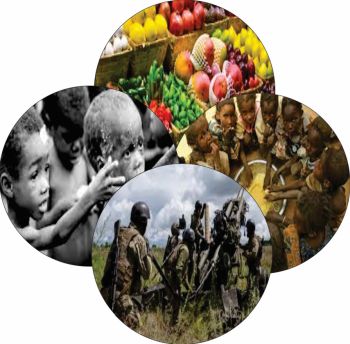Conceptual triple E model for sustainable food security: A solution-based framework for hunger and malnutrition in Nigeria
Abstract
Food insecurity, hunger, and malnutrition have been a global challenge, particularly among low- and middle-income countries, including Nigeria. Despite international donors’ interventions, the number of food insecure households, hunger, and malnutrition keep increasing, though exacerbated by the security challenges in Nigeria. Nigeria ranked 107th out of 113 countries on the Global Food Security Index (GFSI), and the level of hunger in Nigeria remains considerably serious, as Nigeria also ranks 109th out of 125 countries in the 2023 Global Hunger Index (GHI). Owing to these challenges, the Nigerian government has instituted policies and programmes to boost food production, yet the issue of food insecurity persists due to poor implementation. Failure of policies and programmes is principally due to the so-called NO-STEP syndrome-no sincerity or transparency in the execution of policies. Furthermore, there have not been structures that could provide a basis for the formulation of the policies and also evaluate the strengths and weaknesses of their implementation. Therefore, this study outlines a conceptual “Triple E (Evaluation, Education, and Empowerment) framework”. The goal is to strengthen rural agricultural activities for adequate food production, a sure pathway to achieving food security and hunger reduction. Furthermore, considering the increasing number of malnourished children in Nigeria, the Triple E also entails a novel initiative, SIT-250/4/1 (survey, identify, and treat 250 thousand malnourished under five children, every quarter per year), and if adopted by the Federal Government of Nigeria, it could help reduce significantly, in the shortest possible time, the number of malnourished children in Nigeria.

Authors retain all copyrights. In making a submission to World Nutrition, they are certifying that all material is theirs except quotations, as indicated, and that they have obtained permission for any photos, tables, or graphics taken from other publications or websites.




